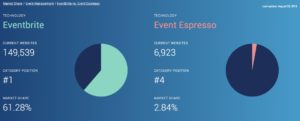Take a walk with me through the future of Blockchain. A place where the majority of humans are living in a world of automation, run by decentralized companies and governments.
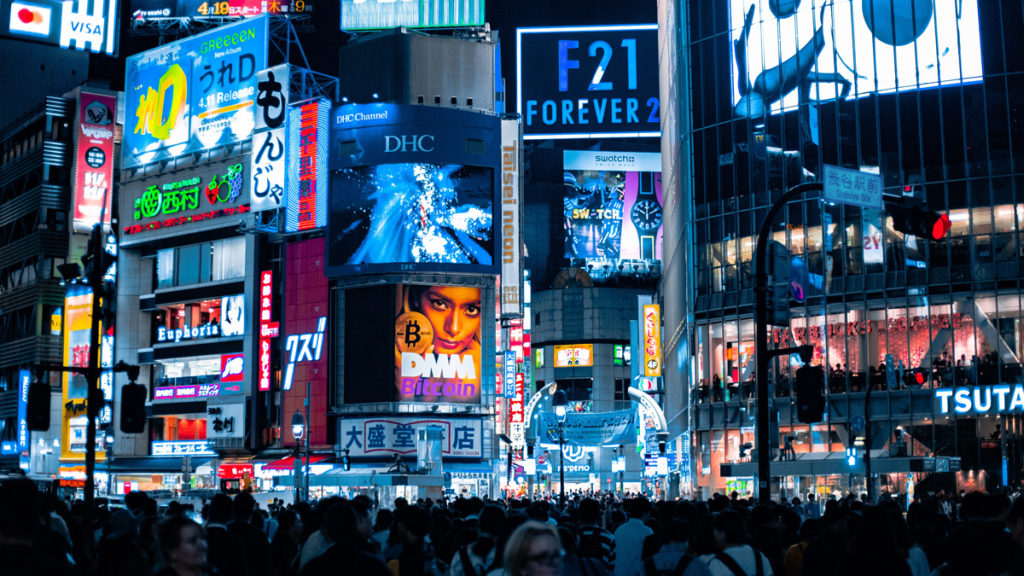
In the Beginning
Ever since our human ancestors became aware and formed cognitive abilities sometime around 70,000 thousand years ago, Human Civilization has been working towards automation, in the forms of handmade tools, farming, and communication.
For thousands of years, humans have been developing ways to make their lives easier in almost every aspect, in the process, inventing a wide array of practices, tools, and technology including the employing the use of animals and even slaves, as well as developing machines to handle their most arduous or monotonous tasks. Fast forward to 2018, where farming, for example, in the modern age is almost entirely automated.
Modern Day Slaves
In America, during the 1800’s, coal miners and railroad workers were slaves of the corporations that employed them; almost every coal mine or employee or railroad worker lived in company-owned communities. They purchased food and supplies and paid rent to live on the company compounds. Even kids as young as six years old were forced to work for the company or had a job in the community.

It seems to me that Google employees and Alphabet owned companies have overtaken more than a few large cities and industries because if you look close enough, you will find instances of this happening in today’s society.
Just take a look inside a few major U.S. technology companies, such as Amazon, Alphabet (Google), and Apple, where the employees eat, sleep and work on campus (company property). Even the term “campus” is used to describe the workplace compounds where these people live. Is that supposed to sound inviting, like a place of learning?
Are these company compounds no more than a place of employment, where every personal interaction and purchase, from clothes you wear to the food you eat, is tracked and analyzed?
Can you imagine all of the data from billions of everyday interactions and transactions turned into a digital record? Keep in mind, all of this data is then stored on a server (that very well could be floating in the ocean somewhere or a data center down the street), where it’s later used (sometimes instantaneously) in algorithms that try to make predictions about our lives.
Many of new tools that we now use in our everyday lives were invented because of farming and manual labor, over the course of approximately 9,000 years. However, nowadays, our most powerful tools are the modern day computer, which allows many of to work, learn, and play, without ever leaving the office.
Even our currency has been digitized to the point where many of don’t carry cash anymore, as it’s too much of a hassle. We can swipe our phone across the screen at the gas pump or dip our debit card into the credit card machine at the self-checkout.
Many of today’s six-year-olds are now listening to corporate sponsored bedtime stories via Amazon Alexa, clicking on targeted ads when playing their favorite games on the Apple iPad, or watching highly targeted commercials for the latest games and toys on YouTube. All of which bring in substantial ad revenue for these companies, especially whenever a six-year-old clicks on an ad in their favorite game or watches a sponsored commercial on a YouTube video of someone else playing a video game or playing with toys. Shouldn’t kids be outside playing, exploring the world, or expanding their minds with a book, instead millions of kids glued to small screens, watching other people play?
Some of my most memorable times as a kid, are when I used my imagination to build new toys from blocks of wood, cardboard boxes, or Lego, and when I got my first Stars Wars figurine and my Darth Vader carrying case. I rarely see kids using their imaginations or playing with toy’s these days.

I remember going to the gas station with my grandma when I was young. It was a time when the gas station attendant stood there waiting to fill up my grandmas gas tank. My grandma would hand him a dollar or two and drive off after her tank was filled. It was an era where Kmart and Target customer’s wrote checks or swiped their credit cards on a rickety, metal and plastic device that made a carbon copy of your credit card onto a slip of paper.
Now we have self-checkout lanes replacing grocery store clerks and online grocery shopping, with curbside pickup or home delivery that have taken the hassle out of shopping for busy families. How have times changed, eh?
Enter the World of Computers & Automation
Now, take a walk with me into the future of automation, where I have more than a few thoughts and predictions about the coming world of automation.
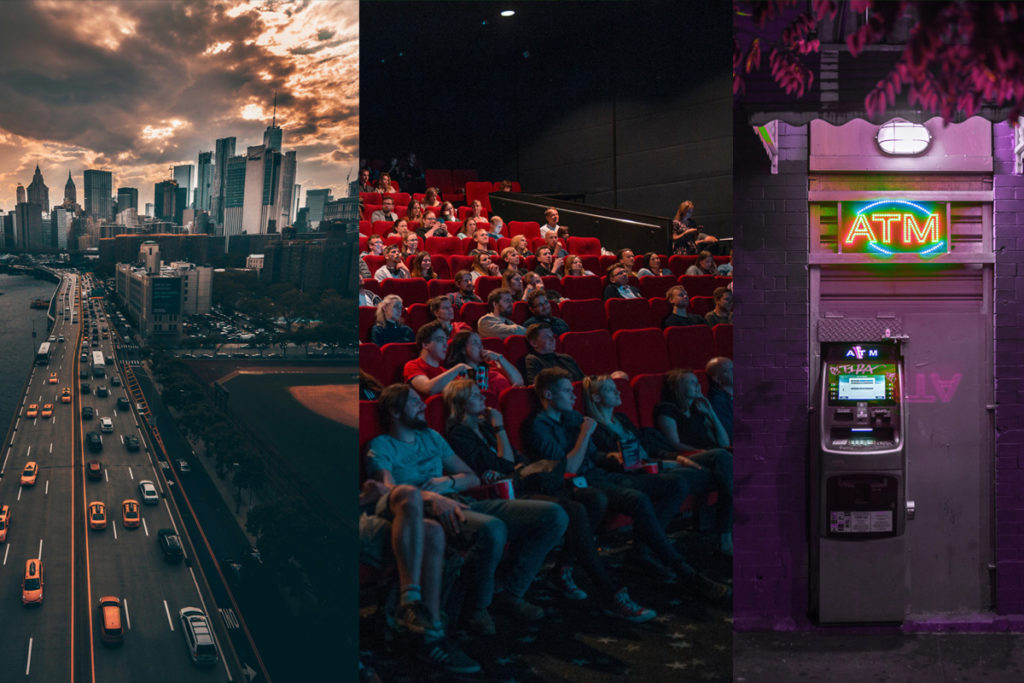
Autonomous Human Pick-up & Delivery
Imagine a day in the not too distant future. A time in which driving to work is no longer an issue because the car in your driveway is autonomous. It arrives every day at 8:15 am in your driveway, with a piping hot Starbucks coffee (which was automatically debited from your Apple account), ready to drive you to work. From there the autonomous car stops at a local grocery store where an automaton loads groceries into the autonomous vehicle, which are then delivered to the next person’s driveway, just in time for that person to unload the groceries, where after the person is taken off to their corner office at the Apple Labs Complex across town.
After work, your autonomous BMW arrives at your place of work. From there, the car blast songs from your favorite band then drops you off at a small concert hall where they’re playing a live show for their most active Facebook fans in your city.
Predetermined Entertainment
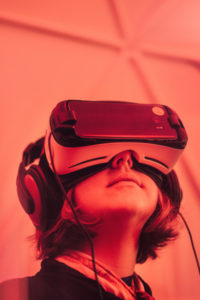 I wonder if our computer overlords will one day control our entertainment based on our parent companies or the companies whom we’ve entered into a contract? Imagine a day when the concerts you attend are pre-determined by the companies with whom you’ve aligned your life. For example, if you are an “Apple Life” member, all entertainment will be provided by Apple Music and Apple TV based on your viewing history. Even the live entertainment you consume, such as concert or plays are all owned and produced by Apple. Meanwhile, access to entertainment from outside the Apple Community is practically impossible. Only people on the Amazon or Facebook-owned networks, properties, or cities can consume entertainment created by their respective companies.
I wonder if our computer overlords will one day control our entertainment based on our parent companies or the companies whom we’ve entered into a contract? Imagine a day when the concerts you attend are pre-determined by the companies with whom you’ve aligned your life. For example, if you are an “Apple Life” member, all entertainment will be provided by Apple Music and Apple TV based on your viewing history. Even the live entertainment you consume, such as concert or plays are all owned and produced by Apple. Meanwhile, access to entertainment from outside the Apple Community is practically impossible. Only people on the Amazon or Facebook-owned networks, properties, or cities can consume entertainment created by their respective companies.
Automated Banking
I envision a life with no more grocery store visits, as everything is tracked and ordered automatically based on likes and usage. How will that work? Will your paycheck be automatically deposited directly into your “Google Bank Account,” and your account is automatically debited for every-day items that are auto-shipped to your “Apple Home” in your “Apple Neighborhood.”
Universal Basic Income
When most jobs have been taken over by automation, will we have some form of Universal Basic Income (UBI)? I am curious as to whom will pay these wages. Are we going to see an evolution in wage discrimination or will everyone be treated the same? What happens to the people who currently live in the projects and the people who live in big fancy homes?
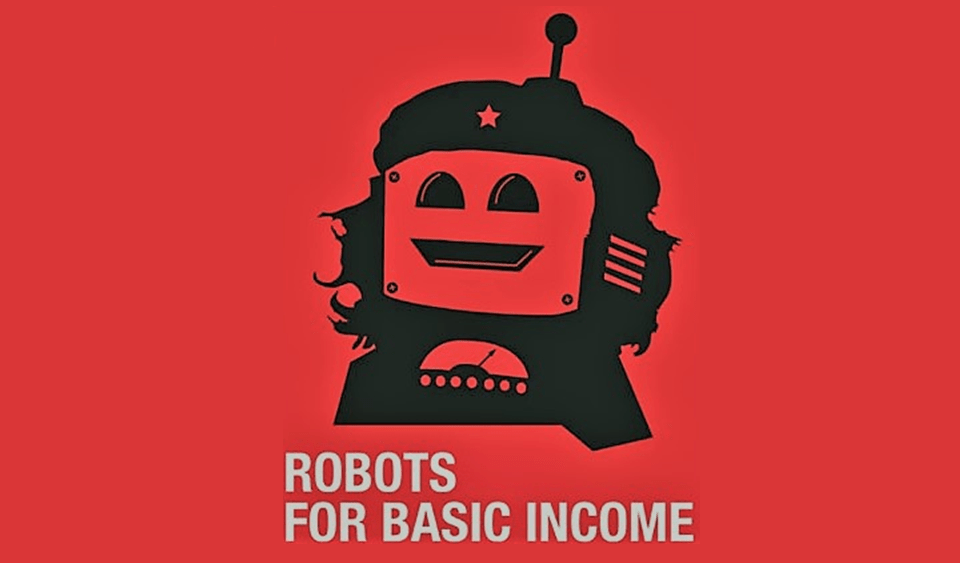
Will the government pay these wages or will Alphabet (Google), Amazon, and Apple be forced to pay UBI to everyone living and working on campus?
Reference:
- https://ourbasicincome.wordpress.com/2015/06/18/circles-universal-basic-income/,
- https://beinglibertarian.com/can-libertarians-advocate-universal-basic-income-lowdown-liberty/
Automated Status Profiling?
Can you imagine a world where status profiling is determined by the organizations we work at or the companies that hold our digital currency? Will it be a world where only your Apple Life Friends are allowed to pass through the gates of your neighborhood? Is our future going to be a place where people in your Facebook Friends and Family Network can’t come to your home because they are not members of the Apple Life Friends Network?
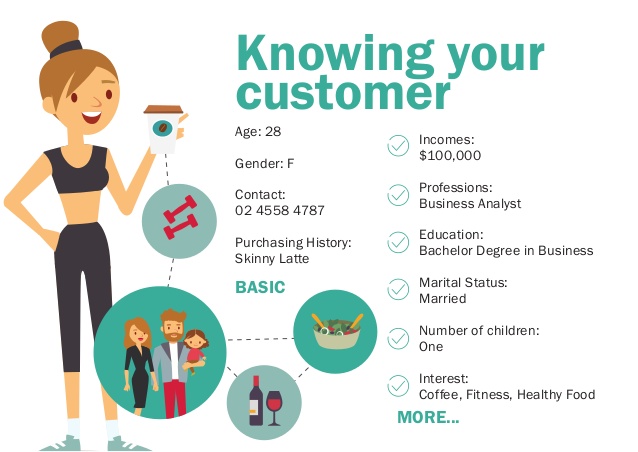
How will things like that work exactly? Will we have to meet at co-meeting places, in seedy areas of town where Apple and Facebook credits are exchanged for good and services?
I don’t think that will be a good thing. Do you?
The Blockchain Revolution
Now imagine a world on the other side of the spectrum. A world where a majority of humans have entered into a world of automation. A place people float in a sea of corporatism, an entire generation that never leaves their homes for entertainment, while being shuttled back and forth to the Corporate Innovation Centers, where their thoughts and ideas are farmed for corporate cryptocurrencies.
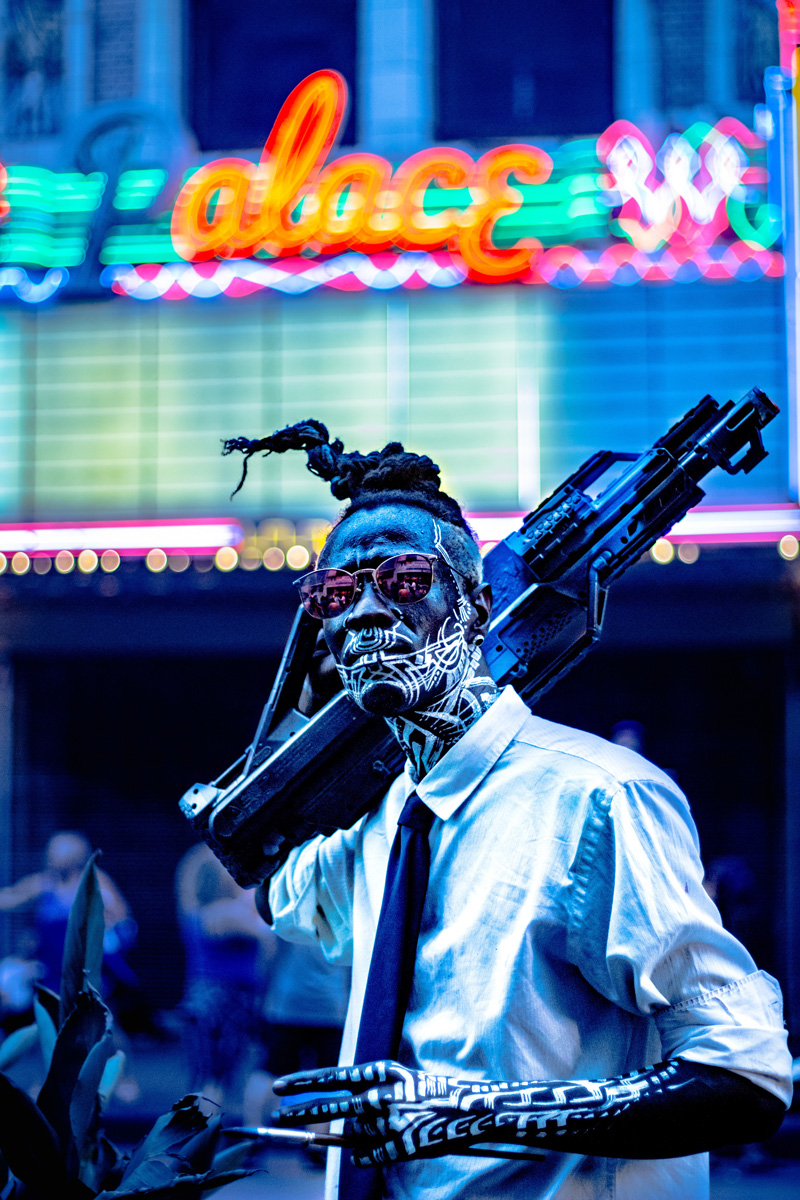
Will blockchain allow individualism to flourish? Will blockchain enable people who strive to live off the grid or build personal offline networks, with self-sustained governments? Will there be a sub-species of humans that have amassed private data centers, where they stockpile pirated movies and music, one day hoping to meet someone with similar tastes in both?
Blockchain in Cryptocurrency
Since everything on the blockchain is digital, it is programmable. Currency can be programmed to keep track of every person who has used it. Software-enabled contracts can know if a job has been completed and make the payment without any middleman. A song on the blockchain could ask you to pay for it before it plays, cutting out iTunes or Spotify and sending the money back to the artist.
Bitcoin is an online currency with a security system run by a massive network of total strangers. Trusting strangers with your digital information may sound silly, but it’s a revolution in distributed computing. And one day, systems like Bitcoin could be the future of all secure digital transactions.
Reference: https://spectrum.ieee.org/video/computing/networks/video-the-bitcoin-blockchain-explained
Blockchain in Entertainment
As I mentioned in my post, Blockchain Technology for Event Management and Ticketing, I think we may start seeing blockchain technology surface in #eventtech at some point. I’m pretty confident it’s already surfacing in payment systems, such as using Bitcoin to pay for tickets but I think we’re going to start seeing it affect event managers in other ways as well, such as managing events, attendance tracking apps, and validating registrations at the door. However, I can foresee blockchain technology being used in a multitude of ways in the entertainment industry. For example, as I mentioned earlier, we may see our entertainment choices limited to a minimal selection of stuff we like personally.
Blockchain in Identity
Will the future bring us a world which uses blockchain technology to keep your digital identity safe? Every day, governments around the world are using technology to track people in new ways, from facial recognition to full-body scanning in public spaces. Will blockchain play an instrumental role in keeping our digital identities out of the hands of criminals and toxic government officials?
Blockchain in Governments
Just like WordPress is democratized publishing, I predict blockchain technology will completely democratize governments worldwide. One of the many advantages of having a computer program manage your government is that it is immune to any outside influence as it’s guaranteed to execute only what it was programmed to do.
Will we see technological and philosophical advancements, such as:
- A virtual organization where members vote on issues
- A transparent association based on shareholder voting
- Your own country with an unchangeable constitution
- A better delegative democracy
Blockchain in Security
Bitcoin, which has never been knocked off-line for any substantial period over the past eight years, reliably incentivizes a network of potentially dishonest participants to process transactions and secure a single version of those events. The result is an ever-growing chain of data that anyone with an Internet connection can inspect and add to, and one that has proven remarkably impervious to attack.
Blockchain in Distributed Energy
Someday, blockchains will allow rooftop solar energy trading for fun and profit.
With a project called TransActive Grid, LO3 Energy has installed 200 smart meters in five neighborhoods in the borough of Brooklyn, in New York City—areas that are speckled with rooftop photo-voltaic installations. In houses that produce renewable energy, the meters record the supply and send it to a custom-built blockchain. Neighbors of these producers own personal smart meters, which act as their nodes on the blockchain, informing them of the energy available. A smartphone application then ties the whole thing together.
Enter Decentralized Applications & Smart Contracts
Imagine if blockchain technology could run certain types of businesses without any employees.

Smart contracts are software programs that live on a blockchain and form the basis of many of the new blockchain applications and schemes. They are essentially automated systems that can provide services in exchange for the cryptocurrency. However, because blockchains are not suitable for storing large amounts of data nor for querying the state of the outside world, they need services that exist off the blockchain to do those things for them.
In practice, this means that anyone can embed a software program into a transaction and know that it will remain there, unaltered and accessible for the lifespan of the blockchain. Theoretically, with a system like Ethereum, you could replace Facebook, Twitter, Uber, Spotify, or any other digital service with new versions that would be invulnerable to censors and transparent in their policies, and which could operate indefinitely in the absence of the people who created them.
Reference: https://spectrum.ieee.org/computing/networks/how-smart-contracts-work
Wrapping Up
Will decentralized applications, better known as “Blockchain,” be the saviors of independent thinking individuals, technophobes, and anarchists?
In the not too distant future, will we live in a world where computers have completely taken over our lives, and automation is our servant? Who would ever imagine that someday Amazon, Apple, and Google would control the personal and financial data of individuals, as well as employ and house entire populations of people, right?
It’s hard to put all of this into writing, without sounding like a conspiracy theorist or doomsday prophet. However, given our track records as humans, I can foresee a future where decentralized governments and companies have taken over the world, while humans bask in the sun on overcrowded Amazon.com Beaches or escape into augmented worlds where practice our virtual farming skills or learn what it was like to be computer programmer back in the day.
What are your blockchain predictions? Let me know in the comments below.
Further Reading
- Life in a Mining Town — Indiana University of Pennsylvania
- The Coming Blockchain Revolution — Newsweek
- Decentralisation: the next big step for the world wide web — Guardian Observer
-
Crypto assets are a new asset class that enable decentralized applications — Chain.com/Jamie Dimon
- Technology’s “Frightful five” — Podcast/Fresh Air
- Could Cryptocurrency kill online advertising? — LinkedIn/Carl Whalley
- The Blockchain Explained — IEEE Spectrum
- Blockchains: How they work and why they’ll change the world — IEEE Spectrum
- Blockchains Will Allow Rooftop Solar Energy Trading for Fun and Profit — IEEE Spectrum
- Build Unstoppable Applications — Ethereum
- 8 Things You Need To Know About Crypto-Currencies — Medium/James Altucher
- Book: Blockchain Revolution
- The Impact of Blockchain Goes Beyond Financial Services — Don Tapscott and Alex Tapscott
- Realizing the Potential of Blockchain — Don Tapscott
- What Blockchain Advocates Can Learn From the Internets Evolution — Don Tapscott
- Realizing the Potential of Blockchain — World Economic Forum
- Five Myths about the Blockchain Revolution — Don Tapscott and Alex Tapscott
- The Blockchain (R)evolution – The Swiss Perspective
- Understanding the 2nd Generation of The Internet and the New Economy
- Archaeology and blockchain: a social science data revolution?
- Blockchain Inclusion Program to Spark Financial Revolution
- When an industry rallies — what’s happening with the “blockchain supercluster” proposal in Canada?
- Introducing CarbonX.ca: Fighting Climate Change with Blockchain
- SXSW Preview: What’s the Next Generation Internet? Surprise: It’s all about the Blockchain!
- What will be the next big thing programmers should start learning? by Keith Kosmicki
Newsletter Signup
Join the EventPresser Newsletter today! I promise we won't send you spam or send you special offers for crap you don't want.
